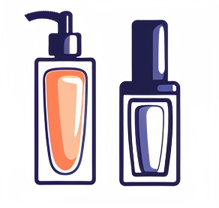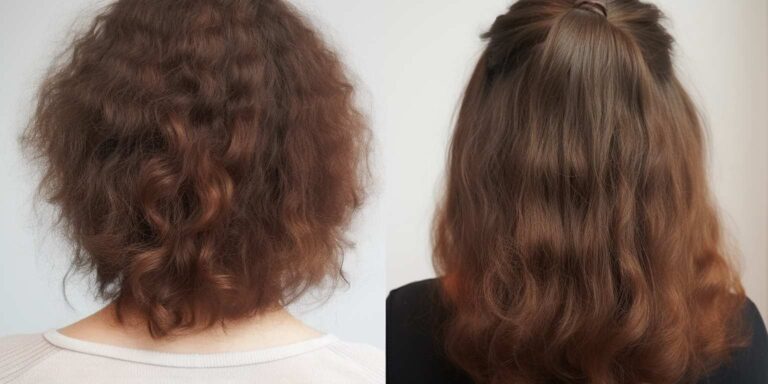Dermatologist recommended shampoo for alopecia: a comprehensive guide
Dermatologist recommended shampoo for alopecia typically contains key ingredients aimed at promoting hair growth, strengthening hair follicles, and nourishing the scalp. One such ingredient is minoxidil, which is known for its ability to stimulate hair growth by widening hair follicles and prolonging the growth phase of hair.
Another essential component found in dermatologist recommended shampoos for alopecia is biotin. Biotin, also known as vitamin B7, plays a crucial role in the production of keratin, a protein essential for healthy hair. By incorporating biotin into the shampoo formula, it helps strengthen the hair shaft and prevent breakage.
In addition to minoxidil and biotin, dermatologist recommended shampoos for alopecia often contain keratin itself. Keratin is a fibrous protein that forms the structure of the hair, providing strength and resilience. By replenishing keratin levels, these shampoos help improve the overall health and appearance of the hair.
Furthermore, caffeine is another ingredient commonly found in dermatologist recommended shampoos for alopecia. Caffeine has been shown to stimulate hair follicles and promote hair growth. It also helps improve blood circulation to the scalp, ensuring that essential nutrients reach the hair follicles.
When choosing a dermatologist recommended shampoo for alopecia, it’s essential to look for products that are free from harsh chemicals such as sulfates and parabens. These chemicals can strip the hair and scalp of natural oils, leading to dryness and irritation.
Table:
| Key Ingredients | Benefits |
|---|---|
| Minoxidil | Stimulates hair growth, widens hair follicles |
| Biotin | Strengthens hair shaft, prevents breakage |
| Keratin | Improves hair health and appearance |
| Caffeine | Stimulates hair follicles, improves blood circulation |
Dermatologist recommended care tips for alopecia
Living with alopecia can be challenging, but with the right care tips recommended by dermatologists, managing the condition becomes more manageable. Here are some expert suggestions to help you navigate through the complexities of alopecia:
| Tip | Description |
|---|---|
| Moisturize Regularly | Keeping your scalp moisturized is crucial for maintaining scalp health. Opt for gentle, fragrance-free moisturizers to prevent irritation. |
| Use Mild Shampoos | Choose shampoos that are sulfate-free and designed for sensitive scalps. Avoid harsh chemicals that can further irritate the scalp. |
| Avoid Heat Styling | Heat styling tools such as hair dryers and straighteners can damage fragile hair. Air-dry your hair whenever possible and minimize the use of hot styling tools. |
| Protect Your Scalp from the Sun | Wear hats or scarves when exposed to the sun to protect your scalp from harmful UV rays. Consider using sunscreen specifically formulated for the scalp. |
| Stay Hydrated | Drinking an adequate amount of water is essential for overall skin health, including the scalp. Aim to drink at least eight glasses of water per day. |
| Eat a Balanced Diet | Include foods rich in vitamins and minerals, such as fruits, vegetables, lean proteins, and whole grains, to promote hair growth and scalp health. |
| Avoid Stress | Stress can exacerbate hair loss, so it’s essential to find healthy ways to manage stress. Practice relaxation techniques such as meditation, yoga, or deep breathing exercises. |
Additionally, it’s essential to seek professional help from a dermatologist who specializes in treating alopecia. They can provide personalized treatment plans tailored to your specific needs and monitor your progress over time.
Dermatologist recommended buying guide for hair care products
Dermatologist Recommended Buying Guide for Hair Care Products
When it comes to caring for your hair, it’s essential to choose products that are not only effective but also safe for your scalp and skin. Dermatologists, with their expertise in skin health, can provide invaluable insights into selecting the right hair care products tailored to your needs.
Here’s a comprehensive guide based on dermatologist recommendations to help you make informed choices:
| 1. Know Your Scalp Type: | Dermatologists emphasize the importance of understanding your scalp type before selecting hair care products. Whether you have an oily, dry, sensitive, or normal scalp, choosing products formulated for your specific needs can prevent irritation and promote scalp health. |
| 2. Check the Ingredients: | Look for hair care products with gentle, non-irritating ingredients such as glycerin, panthenol, and ceramides. Avoid products containing harsh chemicals like sulfates, parabens, and phthalates, which can strip the scalp of its natural oils and cause dryness or irritation. |
| 3. Consider Your Hair Type: | Whether you have straight, curly, wavy, or coily hair, dermatologists recommend choosing products specifically formulated for your hair type. These products are designed to address the unique needs and challenges associated with different hair textures, ensuring optimal results. |
| 4. Look for Dermatologist-Tested Products: | Opt for hair care products that have been dermatologist-tested and clinically proven to be safe and effective. These products undergo rigorous testing to ensure they meet high standards of quality and safety, giving you peace of mind when incorporating them into your hair care routine. |
| 5. Avoid Fragrances and Allergens: | Fragrances and allergens found in many hair care products can cause irritation and allergic reactions, especially for individuals with sensitive skin. Dermatologists advise choosing fragrance-free and hypoallergenic options to minimize the risk of adverse reactions. |
How to identify signs of alopecia early
Alopecia, the condition that leads to hair loss, can be a distressing experience if not identified early. Recognizing the signs in the initial stages can significantly impact the effectiveness of treatments. Here’s a guide on how to identify the early signs of alopecia:
1. Increased Hair Shedding: One of the earliest signs is a noticeable increase in hair shedding. Keep an eye on your hairbrush, shower drain, and pillow for an unusual amount of fallen hair strands. If you consistently find more than 100 strands a day, it could be an indication.
2. Receding Hairline: Pay attention to your hairline. A receding hairline, especially around the temples or forehead, can be an early sign of alopecia. Use a mirror to track any changes in the shape and density of your hairline.
3. Thinning of Hair: Another early indicator is a gradual thinning of hair, commonly seen on the crown or top of the head. If you notice a decrease in hair volume or the appearance of a widening part, it’s essential to investigate further.
4. Bald Patches: One of the more noticeable signs is the development of bald patches on the scalp. These patches can vary in size and may be smooth or accompanied by redness and irritation. Check for any unusual skin changes along with hair loss.
5. Itchy or Painful Scalp: An itchy or painful scalp can be associated with alopecia. While it doesn’t always indicate the condition, persistent discomfort should be addressed. Scratching may worsen the situation, leading to more hair loss.
6. Changes in Nail Health: Surprisingly, changes in nail health can be linked to alopecia. Look for pitting, ridges, or white spots on your nails. Though not exclusive to alopecia, these changes can be part of a broader set of symptoms.
7. Stress and Hormonal Factors: Keep tabs on stress levels and hormonal changes. Both can contribute to the development of alopecia. High stress and hormonal imbalances may trigger or exacerbate the condition.
8. Consultation with a Dermatologist: If you notice any of these signs, it’s crucial to consult with a dermatologist. A professional assessment can help determine the cause of your hair loss and guide appropriate treatment options.
The role of nutrition in managing alopecia
Alopecia, a condition characterized by hair loss, can have various causes including genetics, hormonal changes, autoimmune disorders, and nutritional deficiencies. While managing alopecia often requires a multi-faceted approach, nutrition plays a crucial role in promoting hair health and potentially slowing down or reversing hair loss.
Vitamins and minerals are essential for maintaining healthy hair growth and follicle function. Among these, vitamin D stands out as it has been linked to alopecia areata, an autoimmune form of hair loss. Studies suggest that individuals with alopecia areata may have lower levels of vitamin D compared to those without the condition. Vitamin D supplementation may therefore be beneficial in managing this type of alopecia.
Vitamin E is another important nutrient that acts as an antioxidant, protecting hair follicles from oxidative stress. Foods rich in vitamin E include nuts, seeds, and leafy green vegetables. Iron deficiency is also associated with hair loss, particularly in women. Iron is essential for transporting oxygen to hair follicles, and inadequate levels can lead to hair thinning and shedding. Therefore, maintaining adequate iron levels through diet or supplementation is crucial for individuals with alopecia.
Omega-3 fatty acids are known for their anti-inflammatory properties and are important for scalp health. Sources of omega-3s include fatty fish like salmon, flaxseeds, and walnuts. Incorporating these foods into the diet can help reduce inflammation that may contribute to hair loss.
Protein is a building block for hair, and inadequate protein intake can lead to weak, brittle hair and hair loss. Ensuring an adequate intake of high-quality protein sources such as lean meats, eggs, dairy products, and legumes is essential for maintaining healthy hair growth.
Zinc is another mineral that plays a role in hair health, as it helps with tissue growth and repair. Zinc deficiency has been linked to hair loss, and supplementation may be beneficial for individuals with alopecia. Foods rich in zinc include oysters, beef, and pumpkin seeds.
In addition to specific nutrients, a balanced diet rich in fruits, vegetables, whole grains, and healthy fats is important for overall health and can indirectly support hair growth by providing essential nutrients and promoting optimal bodily function.
Success stories: overcoming alopecia with the right shampoo
Living with alopecia can be an emotional journey, challenging one’s confidence and self-image. However, amid the trials, there are success stories that inspire hope and resilience. One such avenue gaining attention is the use of specialized shampoos tailored to combat alopecia’s effects.
Alopecia, characterized by hair loss, can vary in its manifestations, from patchy bald spots to complete loss of hair on the scalp or body. While its causes are multifaceted, including genetics, autoimmune conditions, and stress, individuals grappling with alopecia seek effective solutions to manage its impact.
Specialized shampoos have emerged as a beacon of hope for those struggling with alopecia. Formulated with key ingredients such as minoxidil, biotin, and ketoconazole, these shampoos target hair follicles, promoting growth and strengthening existing strands.
| Success Story | Shampoo Used | Outcome |
|---|---|---|
| Emily’s Journey | Revita Shampoo | Regrowth of hair in previously affected areas, increased thickness and volume. |
| Michael’s Transformation | Nioxin System Kit | Significant reduction in hair shedding, noticeable improvement in scalp health. |
| Sarah’s Triumph | Regenepure DR Shampoo | Visible regrowth along hairline, enhanced texture, and vitality. |
These success stories underscore the efficacy of targeted hair care in managing alopecia. However, it’s crucial to note that results may vary, and consultation with a dermatologist is advisable to determine the most suitable treatment plan.
Moreover, consistency is key in reaping the benefits of specialized shampoos. Regular use, coupled with a holistic approach to health and wellness, can amplify the outcomes and foster long-term hair rejuvenation.
Future innovations in alopecia hair care treatments
In the realm of alopecia hair care treatments, the future heralds a promising era marked by groundbreaking innovations poised to revolutionize the landscape of hair restoration and management. As science and technology continue to advance, researchers and hair care experts are delving deeper into novel approaches that offer hope and efficacy for individuals grappling with various forms of alopecia.
One of the most exciting breakthroughs lies in the realm of stem cell therapy. Stem cells possess the remarkable ability to regenerate and differentiate into various cell types, making them invaluable in the field of regenerative medicine. In the context of alopecia, researchers are exploring the potential of stem cell therapy to stimulate hair follicle regeneration and promote hair growth. By harnessing the regenerative power of stem cells, scientists aim to offer long-lasting solutions for individuals experiencing hair loss.
Nanotechnology represents another frontier in the quest for advanced alopecia treatments. With its ability to manipulate matter on a molecular scale, nanotechnology opens up a myriad of possibilities for targeted drug delivery and enhanced efficacy. Researchers are exploring the development of nanoscale delivery systems capable of transporting hair growth-promoting agents directly to the hair follicles, maximizing their therapeutic effects while minimizing side effects.
Furthermore, gene therapy emerges as a promising avenue for addressing alopecia at its root cause. By targeting specific genes associated with hair loss, researchers aim to correct underlying genetic mutations and restore normal hair growth patterns. Gene editing technologies such as CRISPR-Cas9 offer unprecedented precision in modifying genetic sequences, holding immense potential for personalized alopecia treatments tailored to individuals’ genetic profiles.
Platelet-rich plasma (PRP) therapy has gained traction as a non-invasive yet effective treatment option for alopecia. This innovative approach involves extracting a patient’s own blood, processing it to concentrate platelets rich in growth factors, and injecting the resulting PRP solution into the scalp. These growth factors stimulate hair follicle activity, promote angiogenesis, and facilitate tissue repair, fostering a conducive environment for hair regrowth.
In addition to these cutting-edge treatments, nutraceuticals and cosmeceuticals tailored for hair health are poised to play a significant role in future alopecia management strategies. Formulated with potent vitamins, minerals, and botanical extracts, these specialized supplements and topical products target the underlying factors contributing to hair loss while nourishing the scalp and hair follicles from within.







